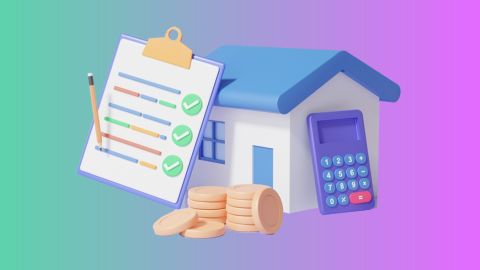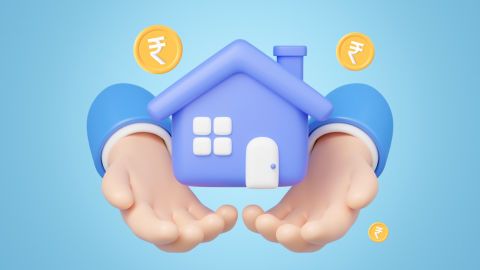
वीज़ा और फ्लाइट
कॉलेज एप्लीकेशन फीस के अलावा, वीज़ा, बीमा और फ्लाइट टिकट की लागत काफी अधिक होती है. प्रॉपर्टी पर लोन आपको बिना किसी अंतिम उपयोग प्रतिबंध के समान लागत का भुगतान करने में सक्षम बनाता है.

इलेक्टिव कोर्स
एजुकेशन लोन केवल ट्यूशन की लागत को कवर करने की संभावना है. लेकिन अगर आपका बच्चा अतिरिक्त क्रेडिट के लिए चुनाव पाठ्यक्रम का विकल्प चुनना चाहता है, तो आपको अतिरिक्त पूंजी के बारे में चिंता करने की आवश्यकता नहीं है.

जीवन व्यय
आपके किराए का भुगतान करने के अलावा, किराने का सामान, परिवहन, फोन बिल और इंटरनेट जैसे अन्य ओवरहेड भी होते हैं. ये आपको एक बड़ी राशि से वापस ले जा सकते हैं. इन पर्याप्त लागतों को अक्सर एजुकेशन लोन द्वारा कवर नहीं किया जाता है और इसके लिए अतिरिक्त फाइनेंस की आवश्यकता होती है.

कोर्स मैटीरियल
आपको अपने कोर्स के दौरान स्टडी मटीरियल, उपकरण, गैजेट, विशेष सॉफ्टवेयर और इसी तरह की सप्लाई की आवश्यकता हो सकती है. ये खर्च आमतौर पर अप्रत्याशित होते हैं और किसी भी समय उत्पन्न हो सकते हैं. इसलिए, अपने बच्चे को बेहतरीन शिक्षा प्रदान करने के लिए अतिरिक्त लोन की व्यवस्था करना बुद्धिमानी है.
हमारे प्रॉपर्टी पर लोन की विशेषताएं और लाभ
 00:44
00:44
प्रॉपर्टी पर लोन की विशेषताएं और लाभ
प्रॉपर्टी पर लोन लेने की विशेषताओं और लाभों को समझें.
-
₹ 10 करोड़ तक की लोन राशि
अपनी मॉरगेज प्रॉपर्टी के आधार पर स्वीकृत ₹ 10 करोड़ तक की बड़ी लोन राशि के साथ अपनी तत्काल फाइनेंशियल ज़रूरतों को मैनेज करें.
-
कम ब्याज दरें
हमारा प्रॉपर्टी पर लोन प्रति वर्ष 8% से 20% (fixed या floating rate of interest) से शुरू होने वाली किफायती ब्याज दरों के साथ आता है
-
72 घंटों* में पैसा पाएं
अप्रूवल के 72 घंटों के भीतर अपने बैंक अकाउंट में पैसे पाएं, यह आपके द्वारा दिए गए सभी डॉक्यूमेंट और लोन देने की जोखिम पॉलिसी के अधीन है.
-
15 साल तक की अवधि
आप 15 साल तक की पुनर्भुगतान अवधि के साथ अपनी लोन राशि का पुनर्भुगतान सुविधाजनक रूप से कर सकते हैं.
-
लोन राशि के उपयोग पर ज़ीरो प्रतिबंध
बिना किसी अंतिम उपयोग प्रतिबंध के, एमरजेंसी के लिए लोन राशि का उपयोग करें या शादी के खर्चों, उच्च शिक्षा या बिज़नेस विस्तार के लिए भुगतान करें.
-
कोई फोरक्लोज़र शुल्क नहीं*
अगर सभी उधारकर्ता और सह-उधारकर्ता व्यक्ति हैं, तो फ्लोटिंग ब्याज दरों पर लिए गए लोन और बिज़नेस उपयोग से अलग उद्देश्यों के लिए गए लोन पर कोई फोरक्लोज़र/पार्ट-प्री-पेमेंट शुल्क नहीं लिया जाएगा.
-
एक्सटर्नली बेंचमार्क्ड ब्याज दरें
आप बजाज फ्लोटिंग रेफरेंस रेट (बीएफआरआर) से लिंक ब्याज दर का विकल्प चुन सकते हैं. यह पारदर्शी ब्याज दर प्रोसेस प्रदान करता है और आपको अनुकूल मार्केट स्थितियों से लाभ उठाने की अनुमति देता है, क्योंकि बीएफआरआर की समय-समय पर समीक्षा की जाती है और आंतरिक कमिटी द्वारा अप्रूव की जाती है. बाहरी बेंचमार्क से जुड़े बजाज फाइनेंस ग्राहक द्वारा होल्ड किए गए किसी भी मौजूदा लोन एग्रीमेंट पर कोई प्रभाव नहीं पड़ेगा.
-
*नियम व शर्तें लागू.
प्रॉपर्टी पर लोन के लिए EMI कैलकुलेटर
कुछ विवरण दर्ज करें और प्रॉपर्टी पर लोन की EMI चेक करें.
योग्यता की शर्तें और ज़रूरी डॉक्यूमेंट
नीचे दी गई शर्तों को पूरा करने वाला कोई भी व्यक्ति हमारे प्रॉपर्टी पर लोन के लिए अप्लाई कर सकता है. यह लोन कोलैटरल के रूप में प्रॉपर्टी का लाभ उठाकर फाइनेंशियल सुविधा प्रदान करता है. योग्यता प्राप्त करने के लिए, आवेदक को प्रॉपर्टी पर लोन की योग्यता की शर्तों को ध्यान से रिव्यू करना चाहिए ताकि यह सुनिश्चित किया जा सके कि वे आवश्यकताओं को पूरा करते हैं. यह आसान लेकिन सुलभ फाइनेंशियल समाधान आपको मैनेज करने में मदद कर सकता है.
प्रॉपर्टी पर लोन के योग्यता मानदंड
- राष्ट्रीयता:
आप भारत में रहने वाले एक भारतीय नागरिक हों और आपके पास ऐसे शहर में प्रॉपर्टी होनी चाहिए जहां हमारी सेवा उपलब्ध हो. - आयु:
न्यूनतम आयु: 25 साल* (नॉन-फाइनेंशियल प्रॉपर्टी मालिकों के लिए 18 वर्ष)
अधिकतम आयु: 85 साल* (नॉन-फाइनेंशियल प्रॉपर्टी मालिकों सहित)
*लोन मेच्योरिटी के समय व्यक्तिगत एप्लीकेंट/को-एप्लीकेंट की आयु.
*को-एप्लीकेंट की उच्च आयु को 95 वर्ष के आधार पर 2nd जनरेशन (कानूनी उत्तराधिकारी) के मानदंडों को पूरा करने और लोन स्ट्रक्चर पर को-एप्लीकेंट के रूप में लिया जा सकता है.
- CIBIL स्कोर:
प्रॉपर्टी पर अप्रूव्ड लोन प्राप्त करने के लिए 700 या उससे अधिक का CIBIL स्कोर आदर्श है.
- व्यवसाय:
नौकरी पेशा, स्व-व्यवसायी प्रोफेशनल जैसे डॉक्टर और स्व-व्यवसायी नॉन-प्रोफेशनल अप्लाई करने के लिए योग्य हैं.
प्रॉपर्टी पर लोन के लिए आवश्यक डॉक्यूमेंट
- पहचान/निवास का प्रमाण - आधार/पासपोर्ट/वोटर ID/ड्राइविंग लाइसेंस/NPR/NREGA जॉब कार्ड
- आय का प्रमाण
- प्रॉपर्टी से संबंधित डॉक्यूमेंट
- बिज़नेस का प्रमाण (स्व-व्यवसायी आवेदक के लिए), और
- पिछले 6 महीनों के अकाउंट स्टेटमेंट
ध्यान दें: यह लिस्ट सांकेतिक है और आपकी वास्तविक लोन एप्लीकेशन के आधार पर बदल सकती है.
प्रॉपर्टी पर लोन की योग्यता चेक करें
जानें की आप कितनी लोन राशि को प्राप्त कर सकते हैं.
प्रॉपर्टी पर लोन की एप्लीकेशन प्रोसेस
 00:45
00:45
मॉरगेज लोन पर ब्याज दर क्या है?
मॉरगेज लोन की ब्याज दरें उधार लेने की लागत निर्धारित करती हैं, जिसे लोन राशि के प्रतिशत के रूप में व्यक्त किया जाता है. ये दरें फिक्स्ड की जा सकती हैं, पूरी अवधि के दौरान स्थिर रहती हैं, या मार्केट के उतार-चढ़ाव के साथ एडजस्ट की जा सकती हैं. भारत में, दरें आमतौर पर लगभग 9% से शुरू होती हैं और क्रेडिट स्कोर, लोन-टू-वैल्यू रेशियो और प्रॉपर्टी की विशेषताओं जैसे कारकों के आधार पर अलग-अलग होती हैं. इन दरों की स्पष्ट समझ महत्वपूर्ण है क्योंकि वे सीधे आपके लोन की कुल लागत को प्रभावित करते हैं. सभी लोनदाताओं की दरों की तुलना करने से आप अपनी फाइनेंशियल ज़रूरतों के अनुसार सबसे किफायती विकल्प सुनिश्चित करते हैं.
मौजूदा मॉरगेज लोन की ब्याज दरें: लागू फीस और शुल्क
हम आपको अप्लाई करने से पहले हमारी फीस और शुल्क के बारे में पूरी तरह पढ़ने की सलाह देते हैं.
फीस का प्रकार |
शुल्क लागू |
ब्याज दर (फिक्स्ड या फ्लोटिंग ब्याज दर) |
8% से 20% प्रति वर्ष |
प्रोसेसिंग शुल्क |
लोन राशि का 3.54% तक (लागू टैक्स सहित) |
डॉक्यूमेंटेशन शुल्क |
₹ 2,360/- तक (लागू टैक्स सहित) |
फ्लेक्सी सुविधा शुल्क |
टर्म लोन - लागू नहीं फ्लेक्सी वेरिएंट (नीचे दिए गए अनुसार लागू ) - (लागू टैक्स सहित) फ्लेक्सी टर्म लोन (फ्लेक्सी ड्रॉपलाइन) फ्लेक्सी हाइब्रिड टर्म लोन - ऊपर दिए गए फ्लेक्सी सुविधा शुल्क लोन राशि से पहले ही काट लिए जाएंगे. लोन की राशि में लोन की अप्रूव्ड राशि, बीमा का प्रीमियम, VAS शुल्क और डॉक्यूमेंटेशन शुल्क शामिल हैं. |
प्री-पेमेंट शुल्क |
पूरा प्री-पेमेंट
|
वार्षिक रखरखाव शुल्क |
टर्म लोन: लागू नहीं फ्लेक्सी टर्म लोन (फ्लेक्सी ड्रॉपलाइन): लागू नहीं फ्लेक्सी हाइब्रिड टर्म लोन: शुरुआती लोन अवधि के दौरान ड्रॉपलाइन लिमिट के 0.295% तक (लागू टैक्स सहित). बाद की लोन अवधि के लिए मान्य नहीं है. |
बाउंस शुल्क |
₹ 1,500/- प्रति bounce/- प्रति बाउंस "बाउंस शुल्क" का मतलब है (i) किसी भी भुगतान के तरीके के अमान्य होने ; या (ii) भुगतान निर्देश के अमान्य होने या भुगतान निर्देश के रजिस्ट्रेशन न होने या किसी अन्य कारण से अपनी संबंधित देय तारीखों पर किश्तों का भुगतान न होने पर लगाया जाने वाला शुल्क |
दंड शुल्क |
दंड शुल्क निम्नलिखित परिस्थितियों में लागू होता है: Kissht के भुगतान में देरी होने पर, प्रति Kissht प्रति वर्ष 36% की दर से पूरी Kissht प्राप्त होने की तारीख तक दंड शुल्क लगेगा. कोवनेंट परफेक्शन शुल्क: i) वितरण के 90 दिनों के बाद महत्वपूर्ण डॉक्यूमेंट सबमिट न करने पर ₹ 800/-. कैटेगरी में किसी एक या सभी सब कैटेगरी का अनुपालन न करने पर देय तारीख से शुल्क लगाया जाता है. ii) वितरण के 120 दिनों के बाद गैर-महत्वपूर्ण डॉक्यूमेंट सबमिट न करने पर ₹ 500/-. देय तारीख से शुल्क. |
स्टाम्प ड्यूटी (संबंधित राज्य के अनुसार) |
राज्य के कानूनों के अनुसार देय |
मॉरगेज ओरिजिनेशन फीस |
प्रति प्रॉपर्टी ₹ 6,000/- तक (लागू टैक्स सहित) अग्रिम शुल्क लिया जाता है. ध्यान दें - प्रॉपर्टी के दोबारा मूल्यांकन के मामले में MOF दोबारा लगाया जाएगा और यह राशि, लोन वितरण की राशि में से काट ली जाएगी. |
| कन्वर्ज़न फीस (फ्लोटिंग से फिक्स्ड)** | टर्म लोन के लिए: बकाया मूलधन का 1.18% तक (लागू टैक्स सहित) + वितरित न की गई राशि (अगर कोई हो) फ्लेक्सी टर्म लोन और हाइब्रिड फ्लेक्सी लोन के लिए: फ्लेक्सी लिमिट पर 1.18% तक (लागू टैक्स सहित) + अवितरित राशि (अगर कोई हो) ध्यान दें: a) कंपनी उस तारीख तक उधारकर्ता के लोन अकाउंट पर लागू ब्याज दर पर 200 BPS का अतिरिक्त ब्याज दर जोखिम प्रीमियम लेगी. b) पूरी अवधि के दौरान तीन कन्वर्ज़न की अनुमति है. c) This is applicable to all Floating Interest Rate equated instalment based personal loans of different periodicities; Personal loans is defined in the RBI circular on “XBRL Returns- Harmonization of Banking Statistics” vide No. DBR.No.BP.BC.99/08.13.100/2017-18 dated January 04, 2018. |
| कन्वर्ज़न फीस (फिक्स्ड से फ्लोटिंग)** | टर्म लोन के लिए: बकाया मूलधन का 1.18% तक (लागू टैक्स सहित) + वितरित न की गई राशि (अगर कोई हो) फ्लेक्सी टर्म लोन और हाइब्रिड फ्लेक्सी लोन के लिए: फ्लेक्सी लिमिट पर 1.18% तक (लागू टैक्स सहित) + अवितरित राशि (अगर कोई हो) ध्यान दें: a) पूरी अवधि के दौरान तीन कन्वर्ज़न की अनुमति है. |
| ROI बदलने के लिए स्विच फीस | बकाया मूलधन का 2.36% तक (लागू टैक्स सहित) |
| कानूनी शुल्क | शुल्क की वसूली |
| रीपोजेशन और आकस्मिक शुल्क | शुल्क की वसूली |
| प्रिंसिपल हॉलिडे सुविधा शुल्क | प्रिंसिपल हॉलीडे (नीचे दिए गए अनुसार लागू) - ₹50,00,000 से कम लोन राशि के लिए ₹5,999 तक (लागू टैक्स सहित). ₹50,00,000 से 74,99,999 के बीच की लोन राशि के लिए ₹11,999 तक (लागू टैक्स सहित). ₹75,00,000 से ₹99,99,999 के बीच की लोन राशि के लिए ₹14,999 तक (लागू टैक्स सहित). ₹1,00,00,000 से ₹2,49,99,999 के बीच की लोन राशि के लिए ₹19,999 तक (लागू टैक्स सहित). ₹2,50,00,000 से ₹4,99,99,999 के बीच की लोन राशि के लिए ₹21,999 तक (लागू टैक्स सहित). ₹5,00,00,000 से ₹7,49,99,999 के बीच की लोन राशि के लिए ₹25,999 तक (लागू टैक्स सहित). ₹7,50,00,000 और उससे अधिक की लोन राशि के लिए ₹29,999 तक (लागू टैक्स सहित). ऊपर दी गई प्रिंसिपल हॉलिडे सुविधा फीस लोन राशि से पहले ही काट ली जाएगी. लोन राशि में अप्रूव्ड लोन राशि, बीमा प्रीमियम, VAS शुल्क और डॉक्यूमेंटेशन शुल्क शामिल हैं. |
सामान्य प्रश्न
कोई भी नौकरी पेशा व्यक्ति या स्व-व्यवसायी योग्यता की शर्तों को पूरा करने के बाद, बजाज फिनसर्व के साथ प्रॉपर्टी पर लोन के लिए अप्लाई कर सकता है. आपकी आयु, रोजगार की स्थिति और निवास का शहर जैसी कुछ अन्य प्रमुख शर्तें भी होती हैं.
अगर आप भारत में रहने वाले 25 साल से 85 साल की आयु वर्ग के बीच के नौकरी पेशा या 25 साल से 70 साल तक के स्व-व्यवसायी भारतीय हैं, तो आप योग्य हैं. जब आप प्रॉपर्टी पर लोन के लिए अप्लाई करते हैं, तो आपकी आय प्रोफाइल, CIBIL स्कोर आदि जैसे अन्य कारकों पर भी विचार किया जाता है.
*नियम व शर्तें लागू
प्रॉपर्टी पर लोन एक सिक्योर्ड लोन है जिसमें आप अपने खर्चों को पूरा करने के लिए एक राशि प्राप्त करने के बदले में अपनी प्रॉपर्टी को लोनदाता को गिरवी रखते हैं. व्यक्ति की प्रोफाइल और पुनर्भुगतान क्षमता, प्रॉपर्टी की मार्केट वैल्यू और लोनदाता का लोन-टू रेशियों जैसे कई कारक लोन की अंतिम राशि को प्रभावित करते हैं.
आप 15 साल तक की सुविधाजनक पुनर्भुगतान अवधि में उधार ली गई कुल राशि का भुगतान कर सकते हैं.
CIBIL स्कोर आपकी लोन योग्यता का एक महत्वपूर्ण संकेतक है. प्रॉपर्टी पर लोन पाने के लिए, 700 या उससे अधिक का CIBIL स्कोर बनाए रखना बेहतर है.






